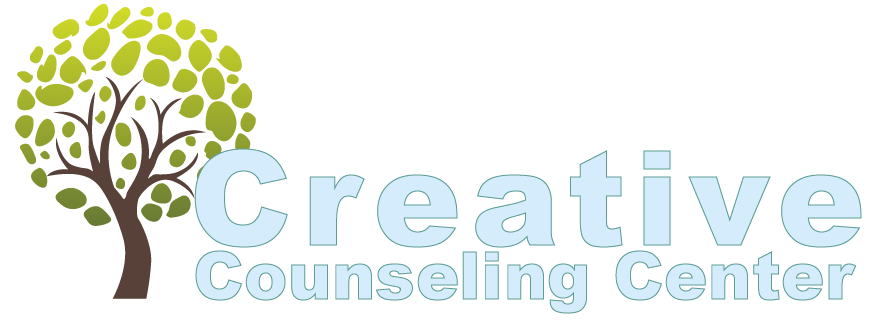Coping with Addiction: It’s Not Just the Addict Who Needs Help
When a family member or loved one is in the throes of drug addiction or alcohol dependency, it’s easy to invest all of our time and energy into helping them: we stage interventions; we help them get into treatment centers and detox programs; we threaten them with ultimatums; we force them into addiction counseling, etc. But until the addict is ready to accept help, there is often very little we can do besides be there to support them once they’re ready to begin their journey.
In the meantime, it’s important to understand that we – the family members and friends of addicts and alcoholics—need help coping with addiction, too. We need help to not blame ourselves, to not put our own lives on hold, and not enable our addicted loved ones to continue using.
Here are a few pieces of counseling advice for families coping with addiction:
1. Take care of yourself. Don’t let self-care fall by the wayside. Taking care of an addict can quickly drain our emotional and financial resources, but it’s important to stay engaged in hobbies and activities that have nothing to do with coping with addiction. Go to the gym, take a hike, get into crafting, do volunteer work at a local animal shelter—anything that soothes your soul and has nothing to do with addiction.
2. Get educated. There are a lot of misconceptions about addiction and alcoholism. The truth is that addiction is a disease—not a moral failing. You cannot fix an addict; they need to be willing and ready to heal themselves. The more you understand addiction, the more you’ll understand how to best support your loved one.
3. Learn the difference between protecting and enabling. As empathetic humans, we naturally want to protect friends and loved ones. However, when a friend or loved one is using drugs or abusing alcohol, helping or protecting them can quickly turn into enabling their addiction. For example, it’s one thing to help your spouse with laundry duties, but it’s another thing to take over the laundry duties because your spouse’s addiction renders them incapable… and because you need to make sure the alcohol stains are properly treated. Refusing to lie about or cover up an addict’s behavior—and especially refusing to buy drugs or alcohol for the addict—and refusing to nurse them back to feeling better after a night or weekend of binging, are a few ways to stop enabling their behavior, even though it may feel like you’re failing to protect or care for them.
4. Seek counseling or outside support. Individual or family counseling can be highly effective for coping with addiction. Our team of counselors works with families dealing with addition every day, and we can help you and your family, too. Request a free phone consultation using the brief form below—find out if family counseling could bring you more peace.
Beyond family counseling, there are support groups and fellowships available to those affected by addiction. Al-Anon is one of the more popular support fellowships, but there are many to choose from.
5. Be realistic. Yes, it would be amazing if you asked your addicted friend or family member to get help and they said, “Okay, sure,” and were cured instantly. Unfortunately, that’s not how addiction works. The road is often long and painful and keeping our expectations on the realistic side can help us manage our feelings of anxiety and maintain inner peace.
6. Remember that addiction is a disease. Addiction impacts the brain in a way that the addict cannot control his or her choices. This has nothing to do with morality and everything to do with the way the addicted brain works. Addicts do not need to be judged – chances are they are already judging themselves pretty harshly, but their substance of choice is calling the shots in their life and they can’t pull themselves away from it without medical attention.
Don’t lose hope! The flip side of addiction is recovery, and it can be a reality for even the most seemingly hopeless addict. Until your friend or loved one is ready to make a change, productively coping with addiction is all you can do. We hope that this advice helps you find serenity in the midst of the chaos of addiction.
Contact Creative Counseling Center
If your family is struggling to cope with the addiction of a loved one, our counselors are here to help. We work with families and individuals to help you process feelings of guilt and shame and rise above addiction to continue living a happy life, against all odds. Complete the brief form below to request a free phone consultation with one of our highly rated counselors. There is a light at the end of the tunnel, and we can help you find it.
Contact Us
We will get back to you as soon as possible.
Please try again later.

ABOUT THE AUTHOR
Teri Karjala is a Licensed Professional Counselor & Marriage and Family Therapist. She is the founder and Executive Director of Creative Counseling Center, LLC. Working in the field since 1999, Teri and her team of therapists specializes in counseling for those who have experienced trauma. They work with children as young as age 2, as well as teens and adolescents, adults, seniors, families, and couples.
REQUEST A FREE CONSULTATION
If you have questions about counseling, would like to find out if counseling could help you or a loved one, or are interested in learning more about our services, just complete the brief form below to request a Free Phone Consultation. A member of our team will contact you shortly. After a brief conversation, we'll determine together whether our practice is right for you and which therapist may be best suited for your specific circumstance.
Finding the right therapist, one you click with, is less about the therapist's experience and qualifications and more about the therapist's personality. So let's talk. Let us match you with a therapist you have a high likelihood of clicking with.
Fields marked with an * are required.
Contact Us
We will get back to you as soon as possible.
Please try again later.
GET SOCIAL WITH US
CONNECT WITH US
PHONE
EMAIL US
ADDRESS
6021 South Syracuse Way, Suite #216
Greenwood Village, CO 80111
OFFICE HOURS
Monday-Thursday: 8:30am-8pm
Friday: 12pm-5pm
Saturday: 12pm-4pm



